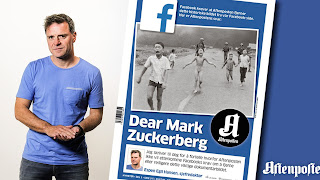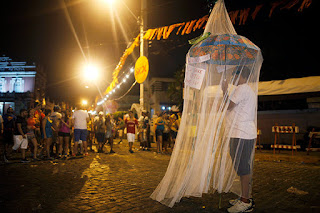 |
| He who gave us our calendar. |
From the frigid tundra of Siberia to the scorching heat of Alice Springs, the start of a new year is a symbolic reboot point and a time to reflect upon the events in our lives that we can and cannot control. Many of us vow to eat healthier, exercise more, drink less, worship better, call home more often, or a myriad of other corrections to the flaws that make us human. We have probably been doing that since the adoption of the first calendar.
Archaeologists have reconstructed methods of timekeeping that go back to the Stone Age, and the first calendars date to the Bronze Age when we discovered metal and writing. They were lunisolar in nature and needed intercalary months - leap months, basically - in order to keep summer as summer and winter as winter. Julius Caesar had enough of that nonsense and introduced a solar calendar to eliminate leap months, following an algorithm that added a leap day every four years. The Persian mathematician Omar Khayyam (yes, he of poetry fame) measured the length of a year to astounding accuracy in the eleventh century, showing that the Julian calendar had too many leap years. Pope Gregory XIII introduced calendar reforms based on the knowledge of the actual length of a year to set the date for Easter in 1582. There are at least thirty-three other calendars in use across the world today, most based on religious beliefs, but generally everyone uses the Gregorian calendar in civil life.
We have reached the year 2018 in the common era, a time of unprecedented technological progress. But with progress come problems, as complicated and complex as the technology itself. Human beings, for whatever reason, make life extremely (and needlessly) complicated, and we may spend as much time trying to solve the problems of our own making as we do sleeping. Consider the internet, arguably the most transformative invention in history. Here we literally have the world at our fingertips. You may be reading this blog post from Johannesburg, Tehran, Delhi, or Paris. You may be using a SumRando server in Sweden, USA, Turkey, Amman, Singapore, Hong Kong, Brazil, or Spain or another server from any corner of the world. You may
buy SumRando VPN with Rand, Rial, Rupees, or Euros with just a number on a plastic card and a click of a button. It's pretty mind-blowing to think about.
Yet we have these people who want to limit our use of such an invention, who censor it or spy on us or steal from us or slow it down so they can make money off us. It's all stealing, really. So for this new year, let us make some resolutions to save the internet from these people who would destroy it, these corporations, governments, hackers, and lobbyists who just can't stand human freedom and dignity, who seek profit and power at the expense of humanity, who would still use a lunar calendar if there were money or power to come from it. Here are our resolutions:
1.
Stand up for net neutrality. The regime in the United States has decided to give the corporations who fund it complete control over what Americans can see on the internet. What will stop other regimes across the world from slowing access to certain websites if the country that invented the internet is unwilling to protect it from those motivated only by power and profit? Even if we won't admit it, developing countries look to the United States for leadership or fear condemnation and consequences for bad behavior. Discarding net neutrality rules indicates to rogue regimes that it is ok to manipulate internet traffic. Unless the United States takes measures to reestablish net neutrality for itself, net neutrality in the world may be in jeopardy. As we've seen in
Portugal, loopholes in EU net neutrality laws make it difficult for any EU country to be a global enforcer. There are just too many questions right now. We all need to push our governments to actively pursue net neutrality regulations so that we may enjoy a free and fair internet like we are wont to do.
2.
Stand up for internet freedom and freedom of expression. Net freedom is a human right. It is that simple. Article 19 of the
Universal Declaration of Human Rights protects freedom of expression, and as an extension, the United Nations passed a
resolution stating that "the same rights people have offline must also be protected online." So not only is internet freedom in our hearts and minds, it is international law. Of course, the usual suspects opposed the resolution, given their addiction to censorship, fear, and surveillance. So we fight on.
3.
Stand up for privacy. At a time when CCTV can
recognize our faces and leviathan social media companies are tracking our every move online (
and sometimes offline, too), privacy is threatened more than ever. Privacy starts with encryption. Encryption is kind of our thing. It's what we do. Get our free encryption tools
here and take back control of your life.
4.
Stand up for encryption. Yes, encryption itself is under threat, as prying governments want to know what you do, where you do it, and whom you do it with. Some lawmakers see boogeymen everywhere. Others just don't understand what encryption is. We are not psychiatrists, so we cannot help the former deal with their paranoia. We are, however, encryption experts. We literally make it. We will continue to help people understand what encryption is, how it is a vital part of our lives, and why you should not be online without it.
5.
Stand up for internet access. In order to do the above, you have to have internet. As of June 2017, only half of the world had access to the internet, with only 41% of the developing world having access, most of that being mobile. Yet access is difficult for many in the developed world as well. Even though a federal court in the United States defined the internet as a basic utility, 35% of rural Americans have no access to broadband. U.S. telecoms corporations have fought pushes to expand access at every turn. We are familiar with that kind of corruption in the developing world and will continue to push for access and expose those who stand as obstacles to it. Rural America has started to take matters into its own hands; we should look to
this story as an example for the world.
 |
| Janus |
So that's our list, and we hope you make it yours, too. January 1 was established as the date for the new year by Julius Caesar to honor the god Janus, the god of gateways and beginnings. Janus, who had two faces, presided over the beginning and end of conflict, of war and peace. The internet took one heck of a beating in 2017. Here's to a much better, freer 2018, and the end of the conflict over internet freedom. Cheers.
















